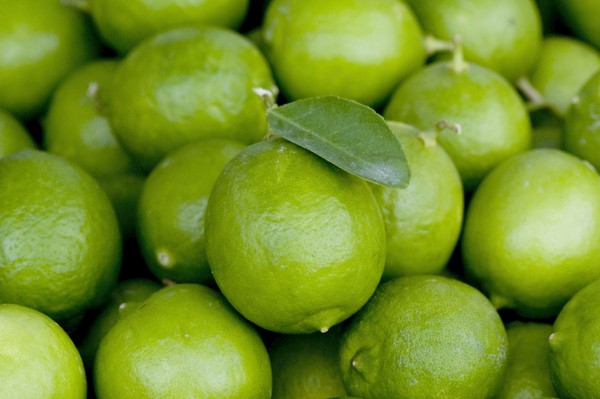Weeds can be a nuisance, and many people turn to chemical weed killers to get rid of them. But what if there was a natural way to keep your garden looking neat? Believe it or not, lemon juice is an effective way to kill the grass – without the use of harsh chemicals!
In this article, we will explore how to apply lemon juice to get rid of grass once and for all. With a few simple ingredients, you can have a beautiful lawn without the worry of toxic chemicals.There are several unruly perennial and annual grasses, such as crabgrass, that can be garden enemies. So, here are the most common weeds. Knowing a bit of each weed can help you pick your battles
How Does Lemon Juice Affect Grass?

Lemon juice is highly acidic and can harm grass by breaking down the plant’s protective outer layer. Applying lemon juice at full strength can remove unwanted grass from your yard. The acid in lemon juice works in two ways: it disrupts plant cells and dries out the plant. The effectiveness of lemon juice depends on the type of grass in your garden. While it can kill many types of grass, larger or fast-growing weeds may be resistant.
Lemon juice is a natural and affordable alternative to chemical weed killers. You can use it without worrying about harming nearby plants. Eliminating weeds with lemon juice is easy; all you need is a spray bottle or dry sponge and fresh-squeezed lemon juice. Mixing lemon eucalyptus essential oil with water can also work.
To determine the amount of lemon juice needed, start with a small patch of grass and work upwards. Depending on the area you want to treat, you may need a 500ml or 64-ounce bottle of lemon juice. Adjust the amount of lemon juice based on the type and number of weeds. Using lemon juice is an effective and natural way to eliminate unwanted grass, but some weeds may be resistant. It is up to you to decide on the best way to eliminate them.
How Does Lemon Juice Affect Soil?
Lemon juice can impact soil positively or negatively, depending on how it’s used. Large amounts of lemon juice can alter pH levels because of its high concentration of citric acid. However, this effect can be reversed by flushing the area with water to dilute the acid concentration.
In small quantities, lemon juice is harmless and can even aid in plant growth.To ensure healthy and fertile soil after using lemon juice, follow proper application techniques. Apply small amounts to a specific area and monitor its effects on soil and plants. If negative effects occur, flush with water.
Consider soil type; naturally acidic soil needs less lemon juice than alkaline soil. Excessive lemon juice can harm beneficial microorganisms. Neutralize acid effects by flushing with water and being mindful of the quantity used. This will help keep soil healthy and fertile for plant growth.
Clean Up Lemon Juice Spill With These Steps
Spilling lemon juice on grass can cause damage to the plant. If this happens, act quickly. To clean up the spill, use a dry sponge or paper towel to blot up as much lemon juice as possible. Avoid rubbing the affected area as this can cause more damage.
Next, mix 1 part lemon juice and 4 parts water in a spray bottle. Shake well.Spray the affected area or plant with the cleaning fluid. Use a wet cloth to wipe gently, avoiding any tools that can cause damage. Repeat the process until the lemon juice is completely removed.
Leaving lemon juice on grass for too long can damage the plant, so quick action is necessary. Cleaning up a lemon juice spill on grass requires careful handling and quick action. By following the steps outlined, you can ensure the health of your grass.
Is Lemon Juice Effective in Killing Weeds and Grass?
To kill weeds or grass, use lemon juice. It’s a great natural option. Lemon juice is an effective herbicide and can replace synthetic weed killers. Use natural strength lemon juice or lemon eucalyptus essential oil. Mix 1 part lemon juice with 4 parts water in a spray bottle.
Shake well. Spray the juice on weeds until wet but not dripping. Or, dip a dry sponge into the solution and press it onto the leaves and stems of the weeds. Be careful not overspray nearby plants. Choose the right type of weed or grass. Lemon juice works best on small, fast-growing weeds like dandelions.
Use Lemon Juice and Borax to Get Rid of Grass
To get rid of grass or weeds in your garden, try lemon juice and Borax. They’re eco-friendly and budget-friendly, but they can be toxic in large quantities and harm nearby plants. Mix half a cup of Borax with one gallon of water and spray it on the plants you want to kill.
Dilute the lemon juice application and spray it on the leaves and stem of the plant. Let the mixture sit for at least an hour. Clean up the space and dispose of the solution properly. With care and application, you can safely and effectively kill grass and weeds in your garden without harmful chemicals.
Use Lemon Juice and Eucalyptus Oil to Get Rid of Grass
Looking for a natural and eco-friendly way to remove unwanted grass from your garden? Lemon juice and eucalyptus oil are two great options to consider. By using these natural ingredients, you can avoid harsh chemicals and still achieve an effective solution to get rid of grass without damaging nearby plants.
Keep reading to learn more about using lemon juice dry and eucalyptus oil to kill grass. Keywords: natural, eco-friendly, unwanted grass, lemon juice, eucalyptus oil, harsh chemicals, effective solution, square feet , , oil of lemon eucalyptus, lemon eucalyptus tree, nearby plants.
Conclusion
Lemon juice is a natural and effective weed and grass killer. It’s affordable and easy to access. Be careful when applying it to avoid damage to nearby plants. Lemon eucalyptus oil is another option but fresh-squeezed lemon juice works for smaller areas.
Understanding the type of grass and weeds is important for effective application. Use a 500ml or 64-ounce bottle for larger areas. This natural solution promotes healthy plant growth while eliminating unwanted weeds.






